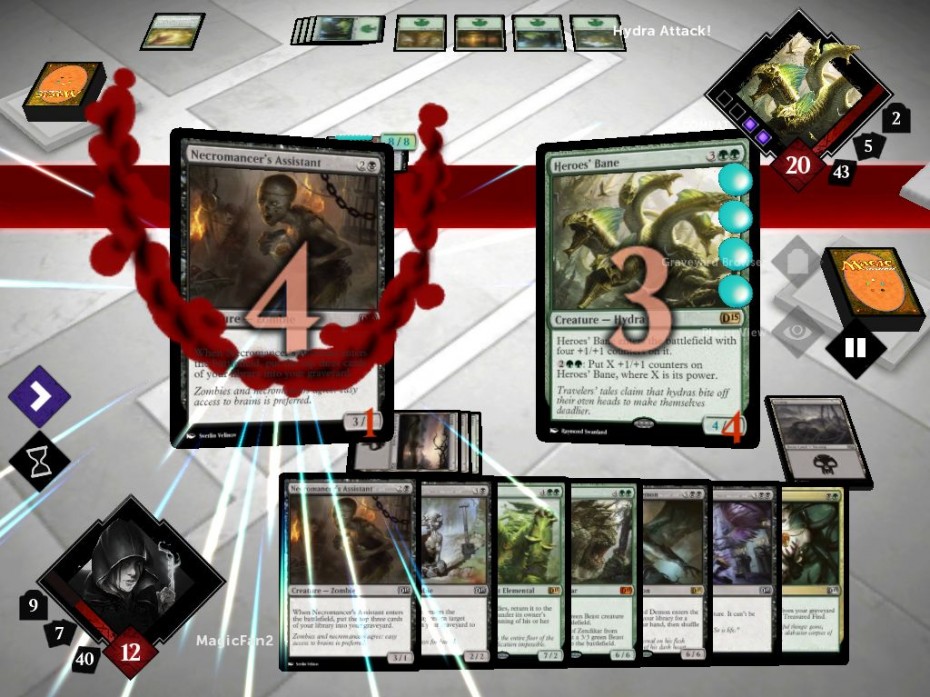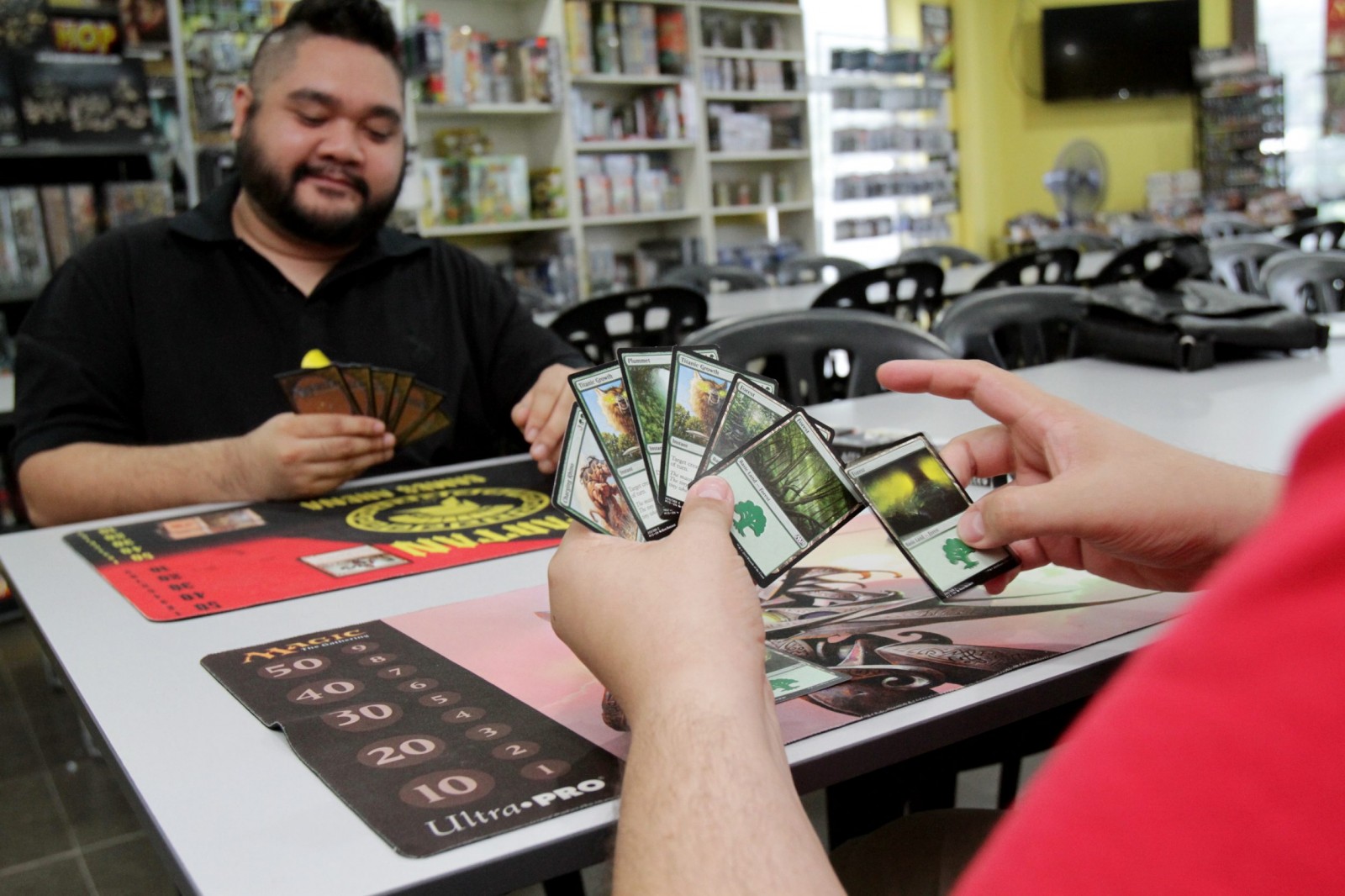TRADING card game (TCG) Magic: The Gathering is a big deal. To put it in perspective, Magic has replaced popular board game Monopoly as Hasbro’s best-selling game.
“It’s a big achievement for us involved in the game,” said Wilkin Chan, 34, Asia Pacific senior brand manager for Wizards of the Coast, a Hasbro subsidiary specialising in fantasy and sci-fi games.
The game’s popularity has also been growing here in Malaysia, where a whopping 3,000 Magic events have been held over the past year alone, according to Chan.
And now, the game once regarded as more of a geek thing, seems set to become even more popular. Chan believes a recent update to Magic: The Gathering – Duels of the Planeswalkers (an online version of Magic) and the launch of a mobile app for the game, will open Magic and trading card gaming in general to an even wider audience.
The journey begins
Reaching that level of popularity, however, didn’t come easy for the game conceived in 1993. Unlike other TCGs like Pokemon and Yu-Gi-Oh!, which both came much later, Magic did not have any kind of TV show or programming to support it, said Chan.
The game only began official distribution in Malaysia in 1997, but by then, a local community of Magic players had already been established, thanks to enthusiastic players and comic retailers who would buy the game overseas.
Today, the game is as popular as ever in Malaysia, played by fans young and old. There are even professional players now who compete overseas, and they’ve done pretty well on the world stage against some of the world’s best Magic players.
The game is played between two or more players, each using a deck of 60 cards (some variations on the game use different deck sizes). The deck will include spell cards and creature cards, which you can use to defeat opponents, and resource cards, which allow you to use your spell cards.
The “T” in TCG comes in when players trade cards outside the games to acquire rare, powerful cards. These days, however, many players simply buy rare cards, some which can cost several hundred ringgit.
Though TCGs are still considered niche market, with Magic at the forefront of the industry, the scene here looks set to grow in years to come.
To date, Magic has over 20 million fans and players across the globe, with over 80 sets (new cards released several times every year) produced and about 13,000 unique cards printed.

This screen grab of the Magic: The Gathering – Duels of the Planeswalkers online game depicts a battle scene between the player and an AI opponent.
Magic evolution
Central to the game’s success is its evolution over the past 21 years. The key advantage Magic has over other TCGs, said Spartan Games Arena co-founder Nik Nadzru, is the constant research and development put into improving the game, and the interaction within the community.
“Right now, for example, they’re already working on the 2016 and 2017 sets,” said the 34-year-old. “It ensures a better playing experience and I don’t see that in other TCGs. Games that have been around for a while tend to get stale.”
Nik has been an avid Magic fan since 1995. Today, he shares his passion for the game through Spartan, a gaming venue in Kuala Lumpur he co-founded with Syed Khaled, 31, and Alvin Forsberg, 35, both Magic fans since they were teenagers.
“Magic always refreshes itself. Every year, they have new rotations, with expansions that add new dimensions to the game,” Syed added. “The economics of the cards also make the game appealing, as they have intrinsic value. You can even turn them into investments!”
Chan reckons what’s held the game together over the years is also its adoption of “organised play” – a structured programme for stores like Spartan the world over to run game nights and tournaments, such as the global Friday Night Magic gatherings.
Going online has also been a major turning point for the game. Today, Magic has successfully transitioned online through Magic: The Gathering Online for the more serious players, and Duels of the Planeswalkers for beginners and casual players.
“Over the past five years, the online game and apps help tie in the game to stores through in-app redemptions and such. It’s initiatives like these that help grow the community,” said Nik.
Powerful community
Nevertheless, the biggest draw (pun intended) of Magic, according to Chan, Nik, Syed and Alvin, is the community itself.

Asia Pacific senior brand manager for Wizards of the Coast, Wilkin Chan, believes the strong structured programme the company has adopted for Magic is responsible for keeping the game going over the years.
“Magic has given me so much in terms of brotherhood. And that’s why I feel it has grown to this level,” Syed said. “Alvin and I, for example, met Nik at a Magic competition during our teens, and we’ve been friends since.”
It is a trend they have witnessed throughout their time playing the game, adding that some younger players start off on different TCGs but eventually gravitate towards Magic as they get older, seeking something more challenging.
“This is not a kids’ game – it’s relatively complex. But having said that, I was once thrashed by a nine-year-old,” Chan joked, adding that the game’s target demographic is between the ages of 14 and 40.
Despite over two decades of improvements, upgrades and technological advancements, Chan said the real magic behind Magic – the game’s core mechanics – has remained unchanged from its humble beginnings. That’s exactly what keeps the community growing.



Tell us what you think!